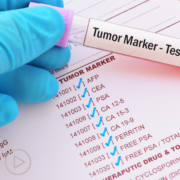Three Key Steps to Take Following a Prostate Cancer Diagnosis
Three Key Steps to Take Following a Prostate Cancer Diagnosis from Patient Empowerment Network on Vimeo.
The actions that a patient takes following their prostate cancer diagnosis could have an impact on their care and treatment options. Expert Dr. Alicia Morgans recommends these three key steps post-diagnosis.
Dr. Alicia Morgans is an Assistant Professor of Medicine at the Robert H. Lurie Comprehensive Cancer Center of Northwestern University.
See more from The Pro-Active Prostate Cancer Patient Toolkit
Related Resources
Transcript:
Dr. Alicia Morgans:
From my perspective, three key steps that a man with prostate cancer would take as he’s getting that first diagnosis would start with getting an advocate – getting someone who can be the extra eyes and ears that you need when you go to a visit or read something that doesn’t quite make sense.
I think this is especially important for doctor visits, where so much information may be put in your lap that it can be really hard for the individual who has prostate cancer to take everything in. And sometimes, having someone who can either take notes or can just be there to listen and to recall things can be really helpful.
The second thing would be to make sure you find a doctor who you can trust. And this sounds really simple, but sometimes can take trying a couple different doctors to really find the one who you feel that you can connect with and who you feel will be able to listen to the questions that you have. Because your questions are valid, and I’m sure that there is a doctor out there who can help answer those questions no matter what they are.
From my perspective, the third thing that individuals should really make sure that they have is a source of information that they feel they can trust. For many men, this is an online source. But it’s real important to recognize that there is a lot of false information, and there’s a lot of information that’s really not necessarily from your perspective as a man with prostate cancer, but perhaps from someone else’s perspective – still truth, but not necessarily your truth.
So, some of the best sources of information can be from advocacy groups or from medical organizations. Because these are usually going to be vetted by physicians or by groups of patients who really try to present both broad perspectives as well as correct information that will be trustworthy as you move through the journey of prostate cancer.












